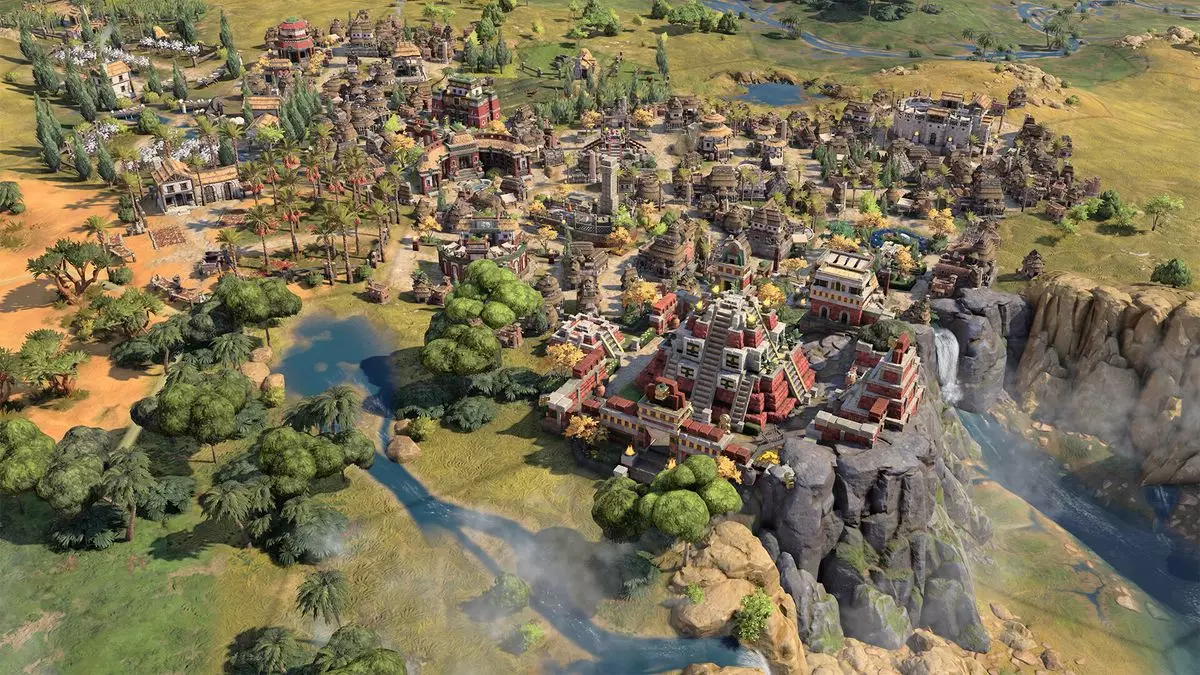The iconic strategy game series, Civilization, has always captivated players with its intricate mechanics and deep gameplay. As we look forward to the release of Civilization 7, a significant transformation is on the horizon. The introduction of the Ages system promises to alter the traditional gameplay format that fans have come to know and love. Rather than sticking to a linear progression through history, Civilization 7 will feature three distinct phases known as Ages, providing players with a fresh and dynamic way to experience the game’s evolution.
The Concept Behind the Ages System
Executive producer Dennis Shirk explains that the Ages system is designed to create a more fluid and responsive gameplay experience. Each Age offers unique opportunities and challenges, allowing players to reassess their strategies and adapt to changing circumstances. This innovation aims to enhance player agency, enabling a more tailored approach to civilization management. Players can switch leaders and civilizations as they progress through the Ages, which means flexibility will be a central theme of gameplay. This shift not only encourages creativity in strategy but also redefines how players engage with the game over various lengths of time.
Strategic Depth Through Discovery
Traditionally, a Civilization game often saw players establishing their plans during the early stages, which could lead to predictability by the mid-game. With the Ages system, that predictability is effectively dismantled. As Shirk notes, players will experience a sense of continuous discovery throughout a match. The tactile experience of exploring one’s continent in the first Age can pivot dramatically as players unlock oceanic navigation in the subsequent Age. This ability to adapt and redefine one’s strategic position at various stages offers a rejuvenating aspect to gameplay. Each Age functions like a puzzle, meant to be unraveled with careful consideration and experimentation.
One of the most exciting aspects of the new Ages system is the variety that comes with the ability to switch civilizations and leaders. Shirk emphasizes that each leader possesses a specific attribute tree, fostering diverse playstyles and strategies. For instance, a player might start with a civilization focused on agricultural dominance in the first Age, then transition to a leader with naval supremacy in the second Age, exploiting newfound capabilities for exploration and conquest. This multi-layered strategizing opens avenues for unprecedented combinations and outcomes, allowing experienced players to reinvigorate their tactics and explore uncharted territories within the gameplay.
Despite the excitement surrounding the Ages system, executive producer Dennis Shirk acknowledges the potential challenges it poses for long-time fans of the series. The complexity of shifting strategies and adapting to the flexibility introduced could prove daunting. Shirk refers to it as one of the “hardest things” for players to master after multiple installments of a game that has remained relatively consistent. However, the hope is that players will embrace this challenge and explore a reimagined experience that prioritizes strategic variability.
Conclusion: Anticipating the Launch
As we eagerly await the launch of Civilization 7 on February 6, 2025, the new Ages system is poised to redefine how players engage with the franchise. By breaking free from the constraints of linear progression, Civilization 7 offers an adaptive and nuanced gameplay experience that could resonate with both newcomers and longtime fans. With the possibility of constant strategic evolution, players may find themselves savoring the thrill of discovery throughout a match like never before. It is an ambitious yet exciting venture that encapsulates the spirit of innovation, and we can only anticipate the fresh stories and strategies that will emerge from this promising transformation in the beloved Civilization series.


Leave a Reply